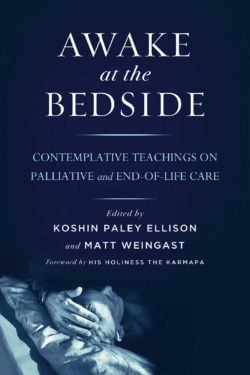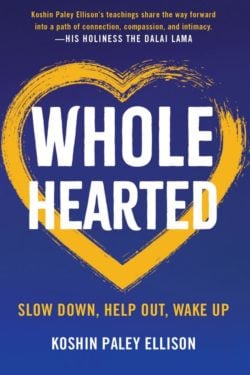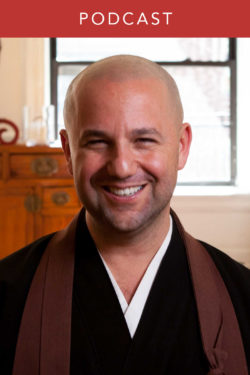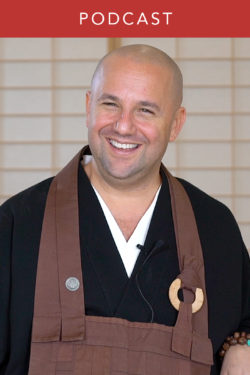Koshin Paley Ellison
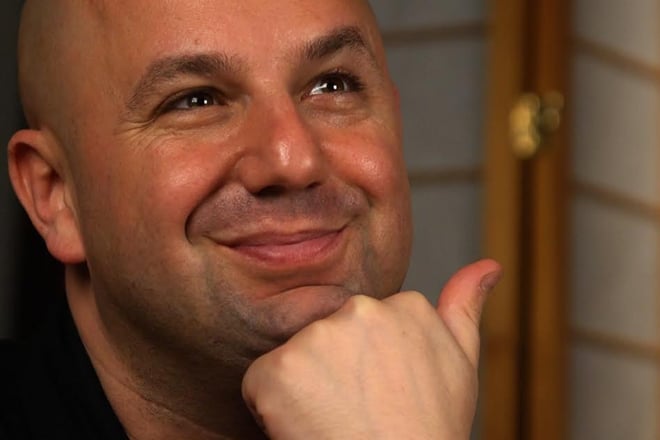
Sensei Koshin Paley Ellison, MFA, LMSW, DMIN, is an author, Zen teacher, Jungian psychotherapist, and Certified Chaplaincy Educator. Koshin co-founded the New York Zen Center for Contemplative Care, serving through contemplative approaches to care through education, direct service, and meditation practice. He has served as the co-director of Contemplative Care Services for the Department of Integrative Medicine and as the chaplaincy supervisor for the Pain and Palliative Care Department at Mount Sinai Beth Israel Medical Center, where he also served on the Medical Ethics Committee. He is currently on the faculty of the University of Arizona Medical School’s Center for Integrative Medicine’s Integrative Medicine Fellowship, on Faculty of the Integrative Medicine Fellowship of the Academy of Integrative Health and Medicine, and he is a visiting professor at the McGovern Center for Humanities and Ethics at the University of Texas Health Science Center of Houston Medical School.
Paley Ellison is a dynamic, original, and visionary leader and teacher. He is the author of Wholehearted: Slow Down, Help Out, Wake Up (Wisdom Publications, 2019) as well as the co-editor of Awake at the Bedside: Contemplative Teachings on Palliative and End of Life Care (Wisdom Publications, 2016). His work has been featured in the New York Times, PBS, Tricycle and others.
His six years of training at the Jungian Psychoanalytic Association as well as clinical contemplative training at both Mount Sinai Beth Israel Medical Center and New York Presbyterian Medical Center culminated in roles as an ACPE Certified Educator, chaplain, and Jungian psychotherapist. He began his formal Zen training in 1987, and he is a recognized Soto Zen Teacher by the American Zen Teachers Association, White Plum Asanga, and Soto Zen Buddhist Association. He serves on the Board of Directors at the New York Zen Center for Contemplative Care, Soto Zen Buddhist Association and Barre Center for Buddhist Studies.
Books, Courses & Podcasts
Awake at the Bedside
How do we think about death? How do we think about the dying? What’s the current state of palliative and end-of-life health care, and how can we improve it? And how do we give care without becoming emotionally and spiritually depleted? In Awake at the Bedside, pioneers of palliative and end-of-life care — as well as doctors, Dharma teachers, chaplains, poets, and caregivers of all kinds — offer insights on incredibly challenging questions like these.
This book isn’t about dying. It’s about life and what life has to teach us. It’s about caring and what giving care really means. Equal parts instruction manual and spiritual testimony, it includes specific instructions and personal accounts to inspire, counsel, and teach. An indispensable resource for anyone involved in hospice work or caregiving of any kind.
Contributors include Anyen Rinpoche, Coleman Barks, Craig D. Blinderman, Bhikkhu Bodhi, Joshua Bright, Ira Byock, Robert Chodo Campbell, Rafael Campo, Ajahn Chah, Ram Dass, Kirsten DeLeo, Issan Dorsey, Mark Doty, Norman Fischer, Nick Flynn, Gil Fronsdal, Joseph Goldstein, Shodo Harada Roshi, Tony Hoagland, Marie Howe, Fernando Kawai, Michael Kearney, Elisabeth Kubler-Ross, Stanley Kunitz, Stephen and Ondrea Levine, Judy Lief, Betsy MacGregor, Diane E. Meier, W. S. Merwin, Naomi Shihab Nye, Frank Ostaseski, Rachel Naome Remen, Larry Rosenberg, Rumi, Cicely Saunders, Senryu, Jason Shinder, Derek Walcott, Radhule B. Weininger.
“Marvelous. A compilation of essential treasures exploring the face and feeling of utter engagement, compassion, and wisdom in turning toward death and being present with and for people who are dying. Our culture might benefit greatly from this book and its institutional implications for end of life care and for caring, period.”
—Jon Kabat-Zinn, author of Wherever You Go, There You Are
“Awake at the Bedside is a beacon in the dark night of our healthcare system today. It is a must read.”
—Donna Karan, fashion designer & founder of Urban Zen Foundation
“Awake at the Bedside brings together an extraordinary group of teachers who share their wisdom and insights into the great issue of our lives: how to understand the dying process in a way that allows for grace and peace as we transition into what for most of us is the great mystery. This volume will certainly be of help for accompanying others in their journeys as well as providing a deeper understanding of our own. ”
—Joseph Goldstein, author of Mindfulness
“This nourishing book, Awake at the Bedside, should be required reading for any compassionate caregiver engaged in fostering healing in themselves, clients, loved ones and society. It envisions revolutionary change in how we care for ourselves and the world.”
—Dr. Andrew Weil
“Profoundly moving, inspiring and helpful, Awake at the Bedside is a real treasure.”
—Jack Kornfield, author of A Path With Heart
“Moving and informative—this is a much needed book! Put into practice, the wisdom of Awake at the Bedside could transform end-of-life care in America. And, every reader will receive support from the collective understanding shared in these pages.”
—Sharon Salzberg, author of Lovingkindness
Wholehearted
“Intimacy is based on the willingness to open ourselves to many others, to family, friends, and even strangers, forming genuine and deep bonds based on common humanity. Koshin Paley Ellison’s teachings share the way forward into a path of connection, compassion, and intimacy.”
—His Holiness the Dalai Lama
Each of us has an enormous capacity for love—a deep well of attention and care that we can offer to ourselves and others. With guidance that is both simple and wholly transformative, Koshin Paley Ellison, Zen teacher and psychotherapist, shows us how to uncover it: pay attention, be of service, and be with others.
With this inspiring and down-to-earth book, drawn from the Zen precepts and illustrated with anecdotes from Koshin’s own life and practice, you’ll learn how to
- explore and investigate with your own core values,
- identify the mental habits that could be unconsciously hurting yourself and others, and
- overcome isolation.
Each chapter closes with a contemplation to help integrate the teachings into your life.
This book is about getting back in touch with your values, so you can live energetically, authentically, and lovingly. This is an invitation to close the gaps we create between ourselves and others—to wake up to ourselves and the world around us.
It’s time to live wholeheartedly.
Koshin Paley Ellison: Zen and the Art of Caregiving
In this episode of the Wisdom Podcast, we meet Koshin Paley Ellison, innovative cofounder of the New York Zen Center for Contemplative Care and author of Wisdom’s recently published book, Wholehearted. Koshin tells us about how he was drawn both to Zen practice and caring for the dying early in life and how the AIDS epidemic, beat poets, and Zen teacher John Daido Loori had an impact on him. He shares with us moving stories of how he cared for his grandmother Mimi at the end of her life and how this relationship helped him to deeply integrate his Buddhist practice into his life. Koshin relates to us how facing our fears can help us respond to others more compassionately and how letting go of our clinging can open up new ways of being. We also learn how for Koshin, study, meditation practice, and caregiving are intimately connected to each other.
Koshin Paley Ellison: How to Forgive
In this episode of the Wisdom Podcast, host Daniel Aitken speaks with Koshin Paley Ellison, author of the wildly popular book, Whole-Hearted: Slow Down, Help Out, Wake Up, published by Wisdom. Koshin is co-founder of the New York Zen Center for Contemplative Care and a teacher in the Sōtō Zen Buddhist tradition. In this fascinating conversation, Koshin tackles the subject of forgiveness, asking what it means to hold ourselves and our loved ones accountable within a broader framework of compassion. He asks: how do we come to see that every individual has some level of innate goodness, some innate capacity to wake up, even while also being capable of doing bad things? Koshin also addresses helpful ways of framing difficult conversations, and how an honest exchange, even when challenging, can yield even deeper connections with the people in our lives.

